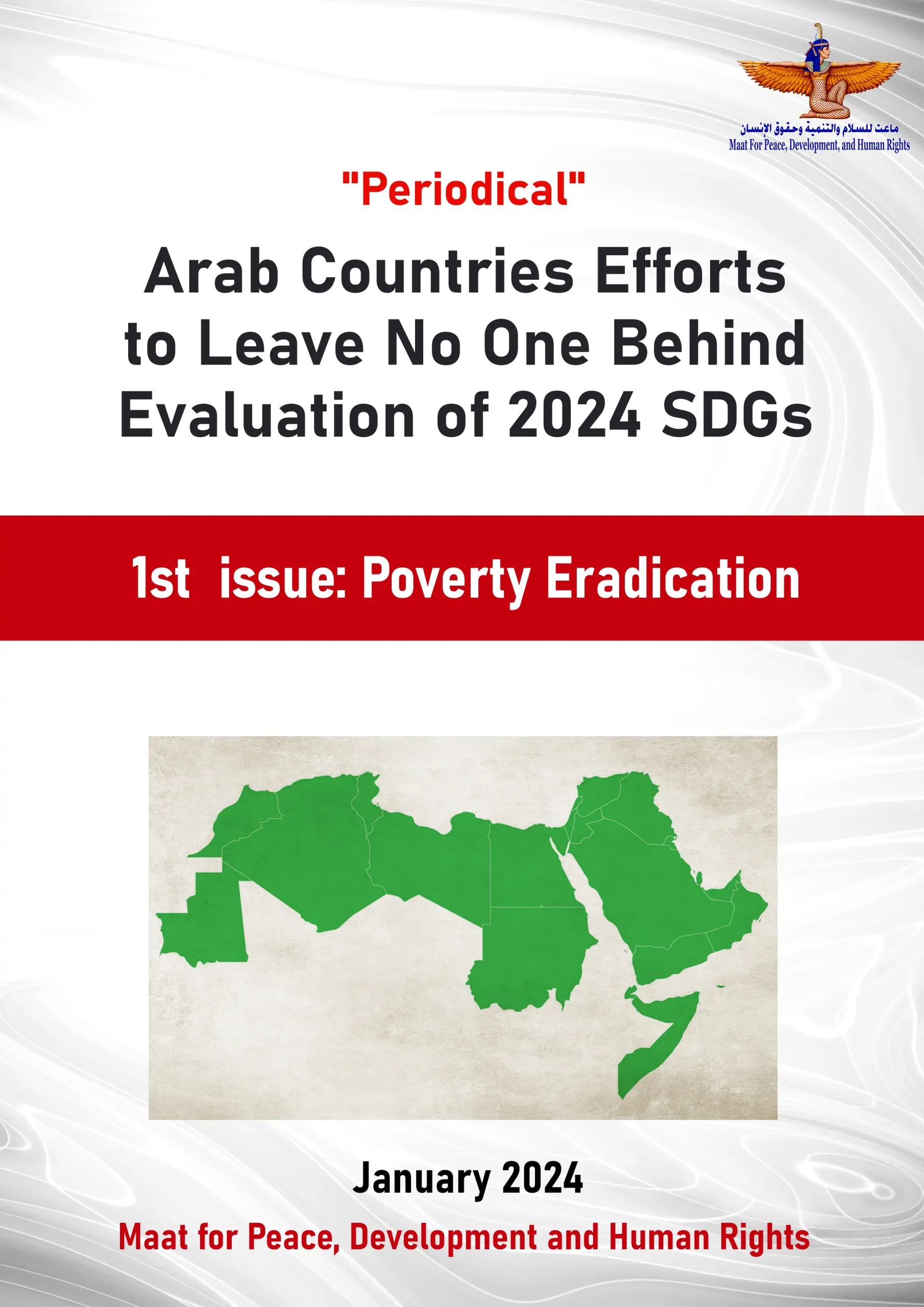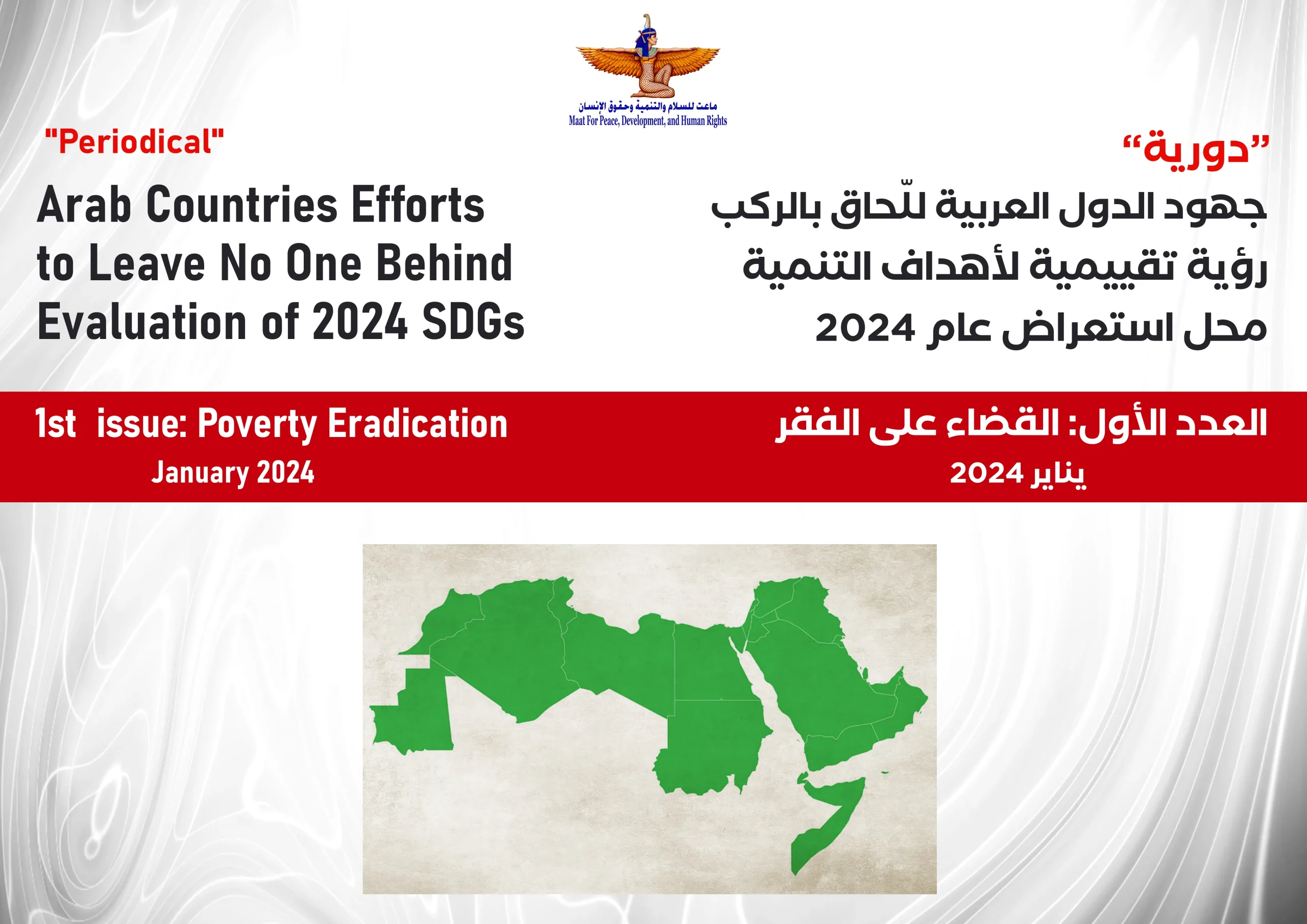Maat Launches a "Periodical" to Evaluate Development Goals in the Arab Region, and Warns that Poverty Rates Will Reach 36% of the Arab Population in 2024
"Okeil": Wars and conflicts are one of the root causes of the increasing poverty rates in the Arab region
Said Gharib: We recommend that Arab countries establish early warning systems for emergencies to build resilience and respond to crises
As part of its participation in the High-Level Political Forum, Maat for Peace, Development, and Human Rights is launching a monthly research periodical titled "Arab Countries Efforts to Leave No One Behind: Evaluation of 2024 SDGs." This periodical aims to monitor and evaluate the development goals under review in the Arab region between February and July 2024. The first issue focuses on assessing Poverty Eradication across all regions of the Arab world.
Maat addressed poverty indicators and rates in the Arab region, as well as the performance of these countries in achieving SDG1 targets. The publication highlights that although the Arab region pays clear attention to sustainable development and its goals, the facts and indicators reveal several contradictions. Despite the Arab region covering an area of 13.15 million square kilometers, with a population of over 430 million people as of December 2023, a youth population of approximately 100 million, and possessing 55% of the world's oil reserves and 27.5% of the world's natural gas resources, the region still faces challenges. It is estimated that about 250 million Arabs are marginalized, poor, or vulnerable, with 1 out of 3 Arabs predicted to fall below the national poverty line, totaling around 131 million people. Maat warns that poverty rates will reach 36% of the Arab population in 2024 due to various challenges, including the COVID-19 pandemic, water scarcity, climate change, increasing population growth, and unemployment.
Ayman Okeil, an international human rights expert and Chairman of Maat, emphasized that wars and conflicts are one of the root causes directly impacting poverty rates, not only in the Arab region but also worldwide. The conflicting countries in the Arab region, including Libya, Syria, Iraq, Yemen, and Palestine, have incurred a cost of over 900 billion dollars between 2011 and 2018. These conflicts have affected 180 million Arabs in neighboring countries, in addition to the long-standing burden of debt carried by Arab countries.
Okeil called on Arab countries to strengthen their capabilities in debt management and direct financial resources towards productive activities, infrastructure, and support for small and medium enterprises. He also recommended the establishment of social protection systems, particularly for the most vulnerable families, along with increased financial investments to implement these systems. Moreover, he emphasized the importance of expanding opportunities for the private sector and civil society to participate in carrying out their roles, promoting social cohesion and cooperation.
Mr. Gharib, a researcher in the Sustainable Development Unit at Maat, similarly emphasized the need to build resilience and effectively respond to disasters, crises, and fluctuations that contribute to increasing poverty and hinder the achievement of the first goal. Measures such as launching early warning systems for emergencies can aid in tackling challenges like the COVID-19 pandemic, the Russian-Ukrainian war, drought, and climate change.
It is worth noting that the periodical "Arab Countries Efforts to Leave No One Behind: Evaluation of 2024 SDGs" consists of five issues. These issues provide an assessment of the indicators of the development goals under review at the United Nations High-Level Political Forum on Sustainable Development, specifically, goals 1, 2, 13, 16, and 17. The Forum follows a mechanism of reviewing and evaluating five goals each year.

 |
 |
shortlink: https://maatpeace.org/en/?p=41405












